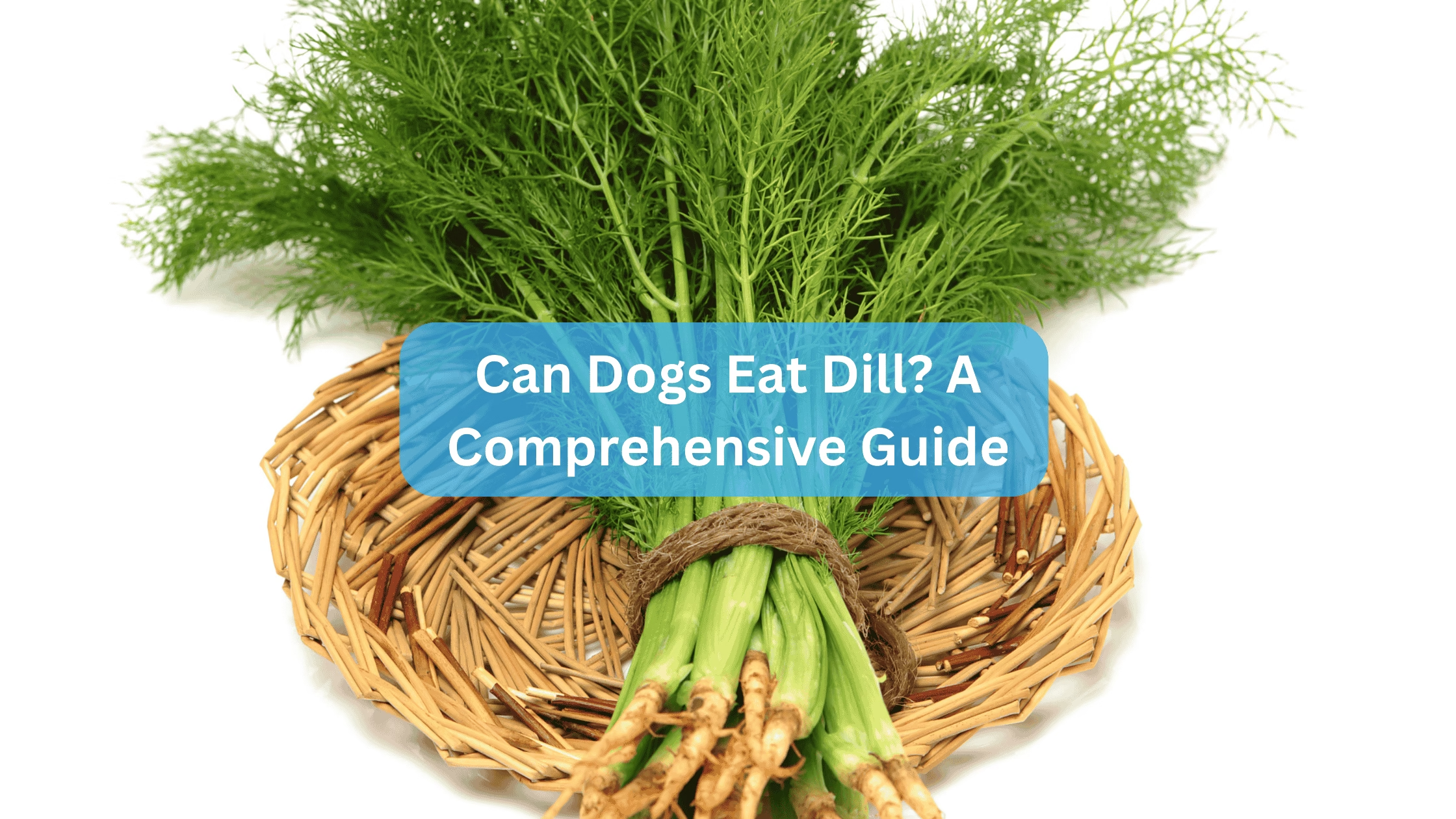Can Dogs Eat Dill? In the realm of pet nutrition, many dog owners often wonder about the safety and benefits of various herbs. One such herb is dill. This guide will explore whether dogs can eat dill, its potential health benefits, and important precautions to consider.
Can Dogs Eat Dill? Is Dill Safe for Dogs?
Dill (Anethum graveolens) is generally safe for dogs when fed in moderation.
It is a member of the parsley family and is known for its culinary uses as well as its potential health benefits.
While there are no reported toxic effects from dill itself, it’s crucial to introduce it slowly into your dog’s diet to monitor for any adverse reactions, such as gastrointestinal upset.
Guidelines for Feeding Dill to Dogs
- Moderation is Key: Start with small amounts, such as a teaspoon of fresh dill or a few dill seeds. Observe your dog for any signs of discomfort.
- Consult Your Vet: Always check with your veterinarian before introducing new foods, especially if your dog has a history of food allergies or sensitivities.
Health Benefits of Dill for Dogs
Dill offers several health advantages that can be beneficial for your canine companion:
- Digestive Aid: Dill has anti-inflammatory properties that can help alleviate digestive issues such as gas, bloating, and nausea. It has been traditionally used to support digestion in both humans and pets.
- Breath Freshener: The antibacterial properties of dill can help freshen your dog’s breath. Chewing on dill seeds may be particularly effective in combating bad breath caused by bacteria.
- Antioxidant Properties: Dill contains antioxidants like kaempferol and vicenin, which can combat free radicals in the body and may contribute to overall health by reducing inflammation and supporting the immune system.
How to Prepare Dill for Your Dog
Incorporating dill into your dog’s diet can be simple and enjoyable. Here are some methods:
- Fresh Dill: Chop fresh dill leaves and sprinkle them over your dog’s food. This method allows you to control the amount you give.
- Dill Tea: Steep a handful of fresh dill leaves in boiling water, let it cool, strain the leaves, and serve the tea over your dog’s food or as a drink. This can enhance flavor while providing health benefits.
Can Dogs Eat Dill Pickles?
While fresh dill is safe, dill pickles should be avoided. The pickling process involves brining cucumbers in a solution that is often high in sodium and may contain other harmful ingredients like garlic or onions, which are toxic to dogs.
Feeding your dog dill pickles can lead to gastrointestinal upset or more severe health issues due to the high salt content.
Risks Associated with Dill Consumption in Dogs
Although dill itself is not toxic, overconsumption can lead to:
- Mild gastrointestinal upset (vomiting or diarrhea)
- Allergic reactions in sensitive dogs
Pregnant dogs should avoid dill altogether due to potential risks of miscarriage associated with high quantities.
Frequently Asked Questions
Can I give my dog fresh dill every day?
Yes, but only in small amounts. A teaspoon per day is generally safe for most dogs.
What should I do if my dog eats too much dill?
Monitor your dog for symptoms like vomiting or diarrhea. If severe symptoms occur, contact your veterinarian immediately.
Are there any herbs I should avoid giving my dog?
Yes, avoid giving dogs onions, garlic, and certain other herbs that are known to be toxic.
Also Read: How to Train a Dog to Use a Pee Pad: A Comprehensive Guide
Also Read: Why Do Male Dogs Hump Each Other? A Comprehensive Guide.
Conclusion
In summary, dill can be a healthy addition to your dog’s diet when given in moderation.
It provides various health benefits including digestive support and breath freshening properties.
However, always avoid feeding your dog dill pickles due to their harmful ingredients. As with any dietary changes, consulting with a veterinarian is recommended to ensure the best health outcomes for your furry friend.
By understanding how to safely incorporate herbs like dill into your dog’s diet, you can enhance their meals while promoting their overall well-being.
Sources:







